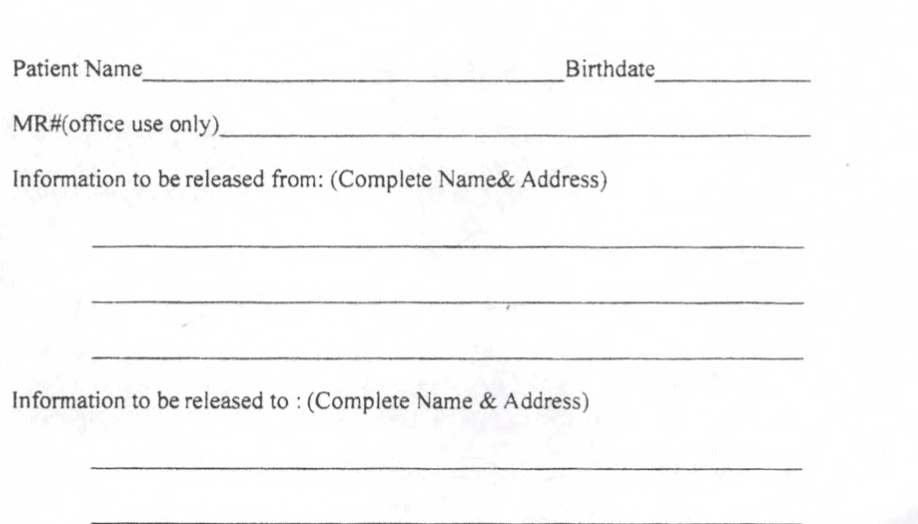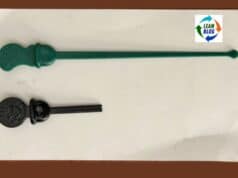As part of my relocation to California, I need to establish a relationship with an ophthalmologist here, as I have had early-onset glaucoma for about ten years (thanks to something called “pigment dispersion syndrome” — fun!).
When making an appointment here in Los Angeles, I asked them about getting my records from my Texas glaucoma specialist.
I was told, not surprisingly,
“Here's our fax number….”
I called my Texas physician and they told me this would be the process:
The old office will email me a PDF (which turns out to be a smudgy scan, shown in part below):

The old MD told me to complete that form and then send it to the new MD office. My first thought was,
“I hope the new MD doesn't ask me to fax it to them.”
I'd just as well drive it to them, if that were the case.
Then, the new MD office will fax that form to the old MD office to request the records.
And the old MD will fax the information to the new MD.
I could spot unnecessary steps, or waste, in that process:
- Send form to new MD
- New MD sends form to old MD
- Old MD sends information to new MD
I thought, “Why don't I just fill out the form and send it to the old MD?” I had their contact info and fax number. I could combine steps 1 and 2 so the process looks like this:
- Mark sends completed form to old MD
- Old MD sends information to new MD
Should they be using fax at all? Why isn't this all seamlessly electronic? That's out of my scope for what I could fix right now, but those are good questions.
I emailed back to the old MD office, asking them if I could just email the completed form to them.
A few hours later, they actually said yes:
“…you may scan the pdf and email back to us. Please include the doctor name and fax number and phone number on the release form.”
The form, of course, didn't have enough space for me to fill out “Complete name and address” AND those two phone numbers. Why are healthcare paper forms so badly designed? That's a different improvement opportunity.
So, I helped them remove a step from the information “value stream,” if you will. But, will the old MD office see this as an opportunity to change their process for other patients going forward?
Probably not… I'm probably labeled as a bit of a pain, LOL.
I posted a version of this on LinkedIn yesterday and it triggered a lot of discussion:
What do you think?
If you’re working to build a culture where people feel safe to speak up, solve problems, and improve every day, I’d be glad to help. Let’s talk about how to strengthen Psychological Safety and Continuous Improvement in your organization.









Mark, I commend your effort, but agree it’s unlikely to stick. I think the problem for local providers is until there is an enforced concerted prohibition on fax communications, with a Medical Records Czar heading it up, there can be no assurance that the day my office goes to scans and emails another provider will fax, or want to, someone’s info over. I believed the Electronic Medical Records Act would have solved most of this, but apparently not.